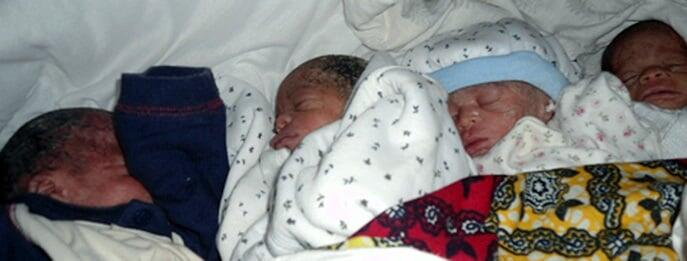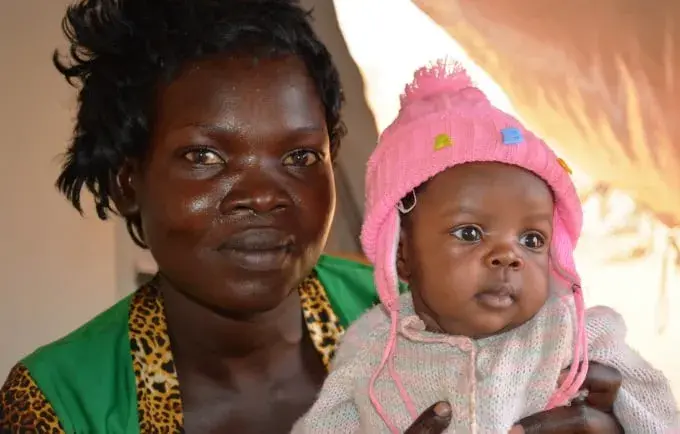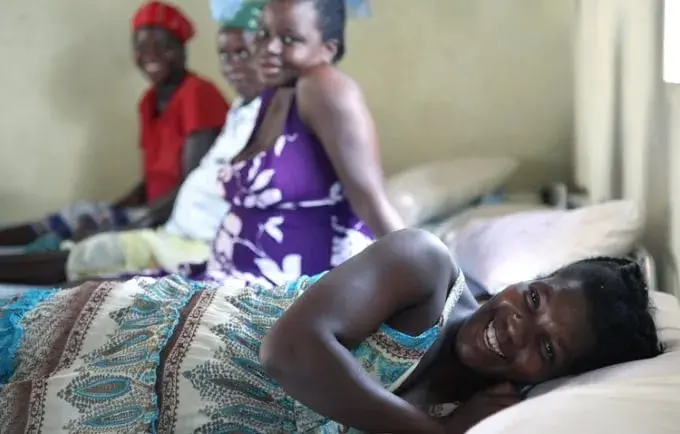KINSHASA, Democratic Republic of the Congo – “In one day, my world changed,” said Bokoli Bepete, 36, from a village in the Democratic Republic of the Congo (DRC). It was something of an understatement: Ms. Bepete had just given birth to quadruplets.
The extraordinary event was cause for celebration throughout the community. And for Ms. Bepete, it was a happy end to a difficult period.
She and her husband had spent years hoping to start a family. But instead, she suffered three miscarriages. Her village, just outside the north-eastern town of Niania, lacked the emergency obstetric services that might have saved her pregnancies.
After each of her miscarriages, Ms. Bepete was unable to obtain follow-up care, putting her health at risk.
Supporting emergency care
Between July 2012 and April 2013, UNFPA implemented a programme to make emergency obstetric and neonatal care available in Niania.
A referral system was created, enabling health workers to send at-risk cases to the local hospital. UNFPA also provided essential drugs, medical equipment and other supplies to the hospital, helping staff better attend to maternal health emergencies.
Among the equipment provided were delivery tables and supplies for Caesarean section deliveries.
By the time Ms. Bepete sought antenatal care for her most recent pregnancy, the local clinic was prepared to handle her case.
“When nurses noticed that my belly was bigger than a normal pregnancy, they referred me to the hospital in Niania,” she said.
The doctors and nurses at the hospital suspected she was pregnant with multiples. But they did not know how many babies she would deliver until they performed a Caesarean section.
Ms. Bepete ended up delivering three boys and a girl. The babies weighed between 2.2 and 3 kg each.
Blessings
Ms. Bepete knows that caring for four infants will not be easy.
She and her husband are poor farmers, and they will need help to make sure the babies grow up healthy. But they also see each of their children as a blessing.
“Now I have the children I wanted,” she told UNFPA.
The maternal and neonatal services they received at the hospital were provided free of charge. Ms. Bepete also received postpartum care, including family planning services.




